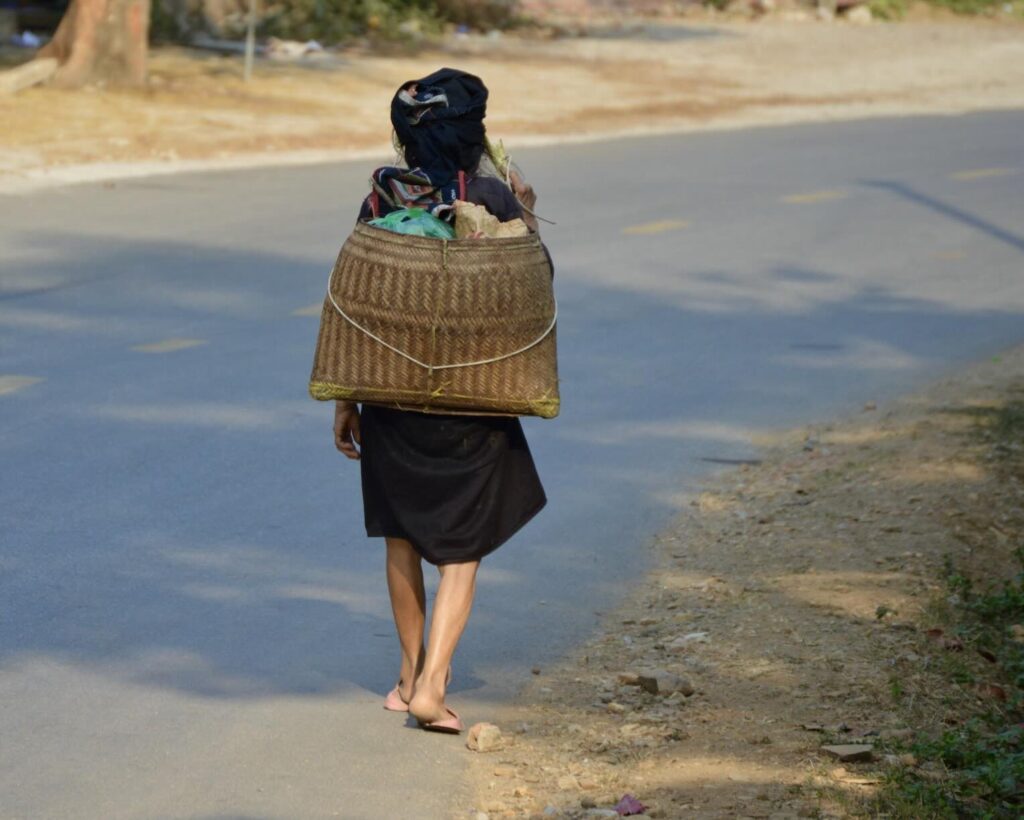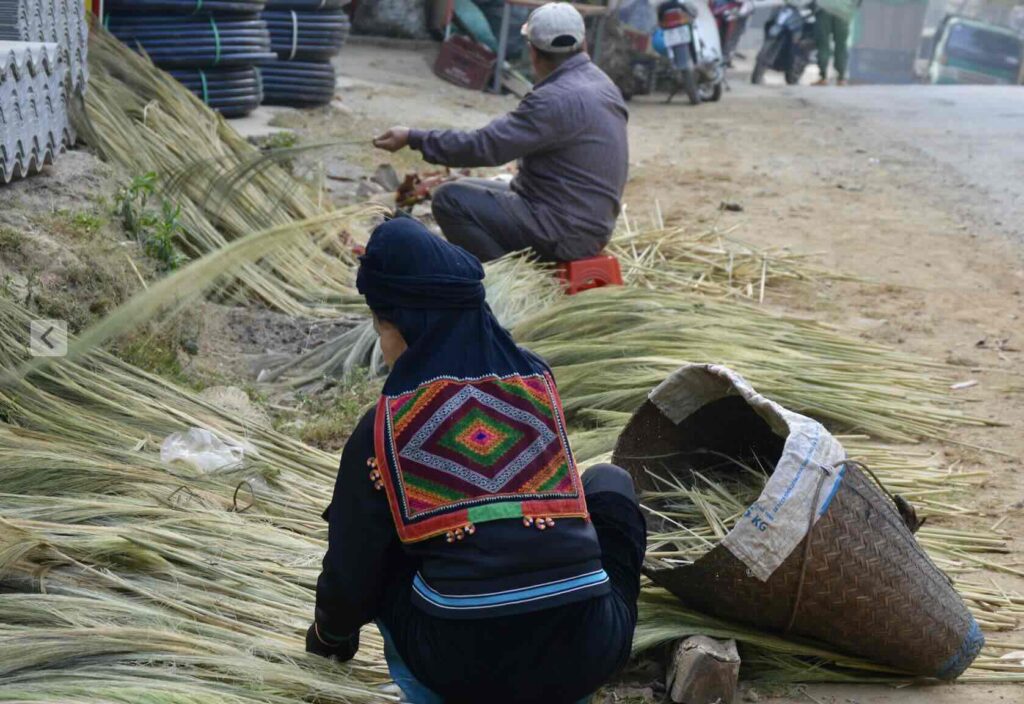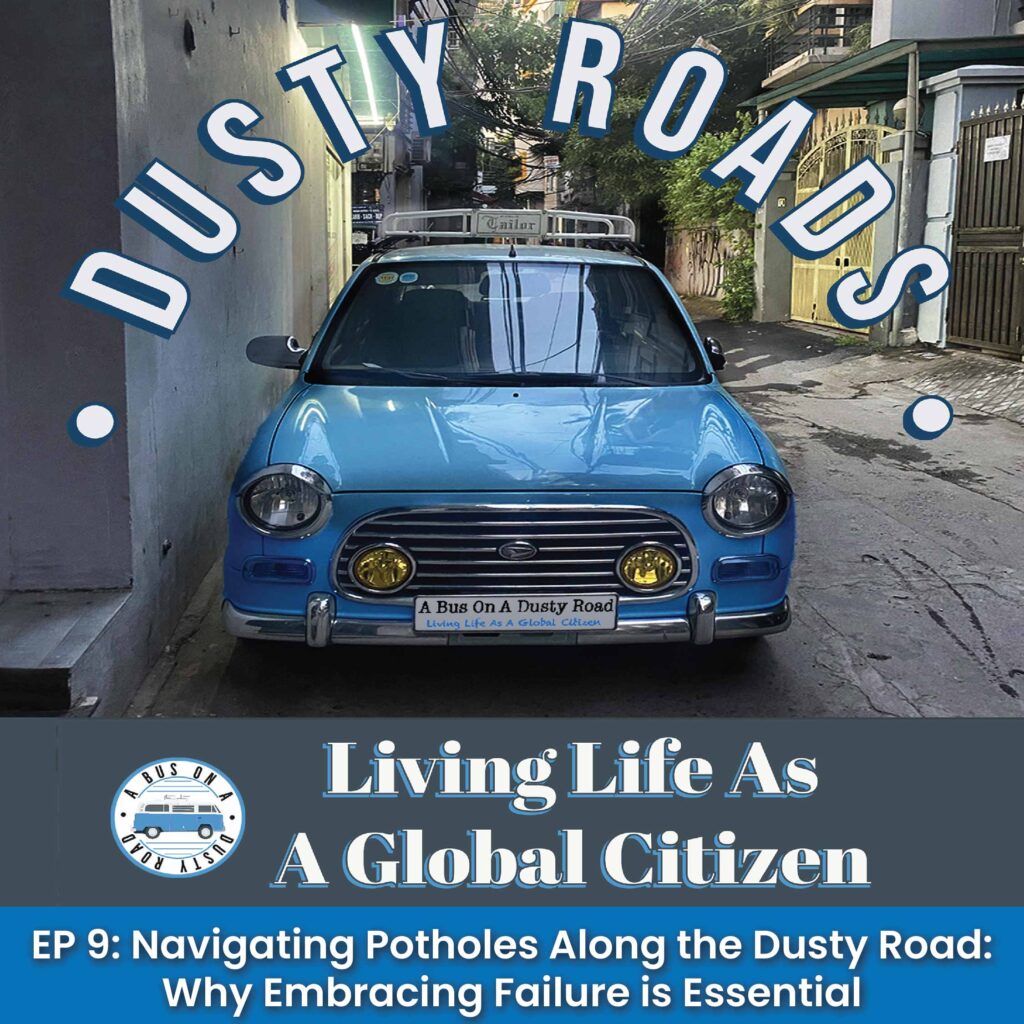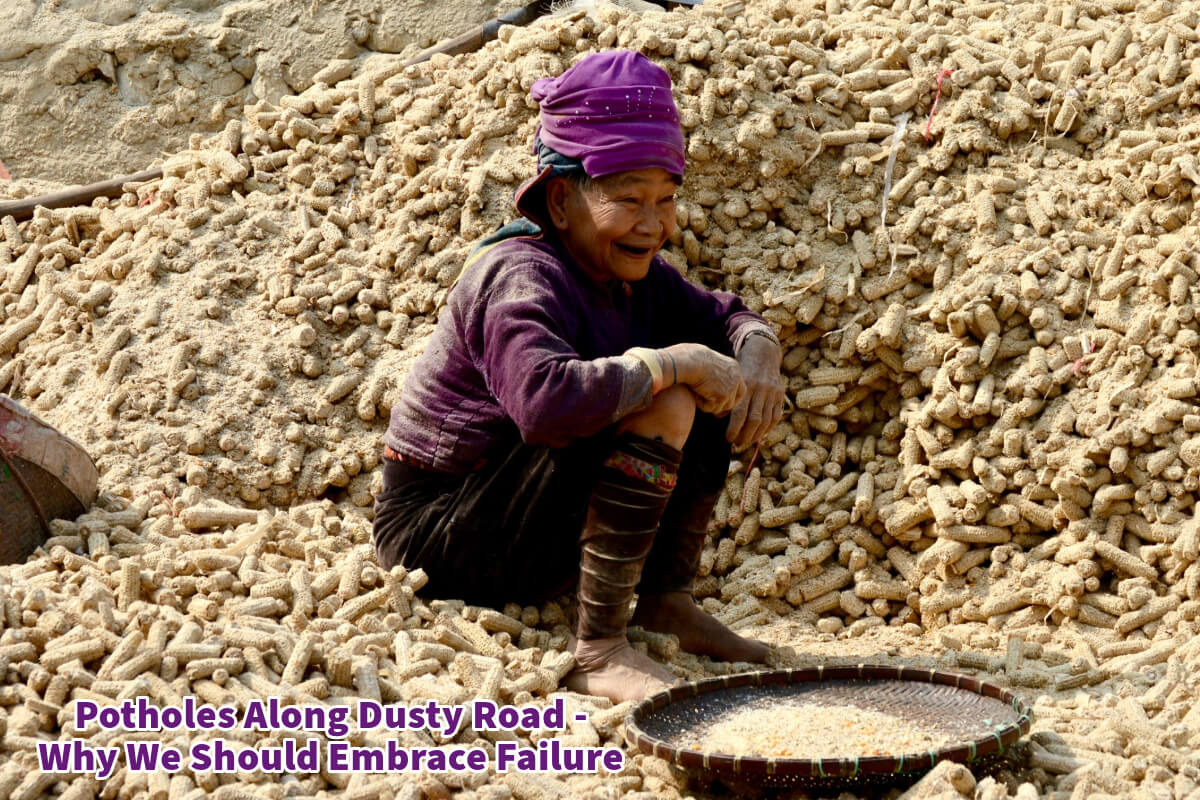I recently wrote a book titled A Bus On A Dusty Road—Life Lessons Learned From Asia. In it, I told stories about what I have learned and discovered through my many travel adventures and how travel has changed my life and perspective.
In my latest endeavor, “Potholes Along Dusty Roads: Life Lessons Learned From Failure,” I explore the intricate dance between failure and growth, drawing from a reservoir of experiences garnered while living life and failing more times than I can count. This blog post aims to glimpse the book’s thematic heart, inviting readers to engage with the often overlooked yet invaluable lessons from failure.
Table of Contents
- Why I Have Decided To Write About Failure?
- Introduction Summary – Potholes Along Dusty Roads Book – Life Lessons We Can Learn From Failure
- Related Content
Why I Have Decided To Write About Failure?
At its core, failure is an enigma—universally experienced yet seldom discussed. It’s a shadowy companion on our journey through life, often hidden away out of embarrassment or fear of judgment.
Our societal narrative idolizes success, curating a highlight reel of achievements that dominate our conversations and fuel the social media engine. Yet, this selective storytelling obscures a fundamental truth: failure is not just inevitable; it’s essential.
Failure shapes us, teaching resilience, adaptability, and humility. It forces us to confront our limitations, propelling us toward self-discovery and growth.
Thus, “Potholes Along Dusty Roads” isn’t just a book about failure—it’s a meditation on the transformative power of our lowest moments. It’s a call to reframe our understanding of failure, not as a mark of defeat but as a catalyst for personal evolution.

The Foundation Of Failure -Why Embracing Failure Is Important
In the introduction to my book, I delve into the reasons behind my focus on failure. This journey isn’t about glorifying setbacks or dwelling on what went wrong.
Instead, it’s about illuminating their path toward resilience, innovation, and success. By sharing stories of personal and observed failures, I aim to dismantle the stigma surrounding these experiences, advocating for a more accepting and constructive approach to life’s inevitable obstacles.
The essence of this project is to highlight that hiding our failures only diminishes the richness of our shared human experience. Embracing them opens the door to insight, empathy, and connection. It’s through our shared vulnerabilities that we find strength and common ground.

The Message: A New Perspective On Failure
“Potholes Along Dusty Roads” seeks to alter the conversation around failure, treating it as a necessary stepping stone rather than a roadblock. Each chapter unfolds with narratives that reveal the multifaceted lessons hidden within failures, from the personal to the professional, from trivial to transformative.
The book is a testament to the beauty of imperfection and the growth that emerges from it. It invites readers to view their potholes not as dead ends but as detours on the road to a more fulfilled, resilient, and authentic life.
The ethos of “Potholes Along Dusty Roads,” I invite readers to join me in redefining failure. Let’s shed the cloak of shame that often accompanies our setbacks and instead celebrate the profound lessons and opportunities they bring.
Together, we can navigate the dusty roads of life, not by avoiding its potholes but by embracing them as markers of our shared human journey toward growth and self-discovery.
Introduction Summary – Potholes Along Dusty Roads Book – Life Lessons We Can Learn From Failure
Years ago, amidst the lush landscapes of Vietnam’s mountains, I embarked on a heartfelt mission in an old truck: delivering essential school supplies to an isolated village. The expedition was a patchwork of diversity, with a rugged Australian at the helm, his Vietnamese partner by his side, and my friends Nada and Justin squeezed in the back with me.
Our passage was marred by post-rain chaos—mud-slicked roads, gaping ruts, and menacing potholes. A vicious pothole sent us into a precarious slide, halted miraculously by a lone cement block that prevented our descent into disaster. This near catastrophe, leaving us stranded and helpless, underscored the fragility of our existence.
Salvation came unexpectedly through the villagers’ solidarity and ingenuity. Despite initial failures, their collective will and clever use of planks as levers eventually freed our truck. This ordeal tested our resilience and illuminated the profound connection between adversity and the human spirit.
Reflecting on this adventure, I’ve recognized potholes as more than mere physical obstacles—they symbolize life’s unpredictable challenges. How we confront these adversities defines us, urging us to find our “cement blocks” of support, leverage them towards recovery, and get back down the mountainside.

How We Deal With Failure Does Matter In Life – The Story Of Sally
My college experiences and my friend Sally’s academic downfall illustrate how we deal with failure. Sally’s reaction to a single B+—viewing it as an existential failure—led her to self-destruct, abandon her studies, and eventually fail.
Sally’s story is a stark lesson on the nature of failure and resilience. It highlights the delicate balance between self-perception and reality and the dangers of letting setbacks dictate our actions. This cautionary tale emphasizes the importance of perspective, the strength found in overcoming setbacks, and the value of confronting failure with courage and determination.
How We Handle Failure Is Crucial In Life
As we navigate life’s uncertainties, how we handle failure becomes crucial. Acknowledging and preparing for setbacks, rather than shying away, strengthens our resilience and fosters growth. We embrace failures as lessons can transform our path, enabling us to tackle life’s potholes with grace and emerge stronger.
Ultimately, this journey through Vietnam’s rugged terrain and the academic trials of college life unfolds into a broader meditation on the resilience of the human spirit, the power of community, and the transformative potential of facing challenges with courage. It’s a testament to the idea that for every pothole encountered on the dusty roads of life, there lies a path forward, paved with lessons of resilience, innovation, and the indomitable human will to overcome.
Potholes Along Dusty Roads: Life Lessons Learned From Failure by Dusty Roads Publishing will be released in early 2025. Discover more about our book Potholes Along Dusty Roads by clicking here.
Don’t miss out on Anita’s fascinating story, and grab a copy of her first book, “A Bus On A Dusty Road: Life Lessons From Living In Asia,” you can order by clicking here.
Listen To Our Podcast About Navigating Potholes Along the Dusty Road: Why Embracing Failure is Essential
Below or By clicking here.

At A Bus On A Dusty Road, we talk about travel, life, and ex-pat living. We are all about “Living Life As A Global Citizen.” We explore social, cultural, and economic issues and travel.
We would love to have you be part of our community. Sign up for our newsletter to keep up-to-date by clicking here. If you have any questions, you can contact me, Anita, by clicking here.
Listen to our Podcast called Dusty Roads. You can find it on all major podcast platforms. Try out listening to one of our podcasts by clicking here.
Subscribe to our A Bus On A Dusty Road YouTube Channel with great videos and information by clicking here.
Related Content
When Was China’s War With Vietnam?
The most significant conflict between China and Vietnam happened in 1979 – the Sino-Vietnamese War – although tensions had been building for some time due to disputes over territorial waters and Vietnam’s involvement in Southeast Asia, this war had a lasting impact on both Vietnam and China.
By clicking here, you can discover When Was China’s War With Vietnam?
Is It Safe To Walk At Night In Hong Kong? Tips to Stay Safe
Hong Kong is still a relatively safe city, and Hong Kong is usually safe to walk at night. But with any place that you are traveling, there are some precautions that you should take when you are walking around a city that you do not know. In recent years, Hong Kong has had some violent protests, which has increased crime. Crime in Hong Kong is considered a crime of opportunity and is not as violent as in other parts of the world.
By clicking here, you can discover Is It Safe To Walk At Night In Hong Kong? Tips to Stay Safe.
How Long Has Mongolia Been A Country?
In 1911 Mongolia broke from Chinese rule; in 1921, the socialist People’s Republic of Mongolia was formed. The People’s Republic of Mongolia was a satellite state of the Soviet Union. When the Soviet Union broke apart in 1989, Mongolia’s fate again changed. In 1990, Mongolia, an independent and democratic country, was formed; its official name is Mongol Uls.
You can discover more by reading How Long Has Mongolia Been A Country? by clicking here.

